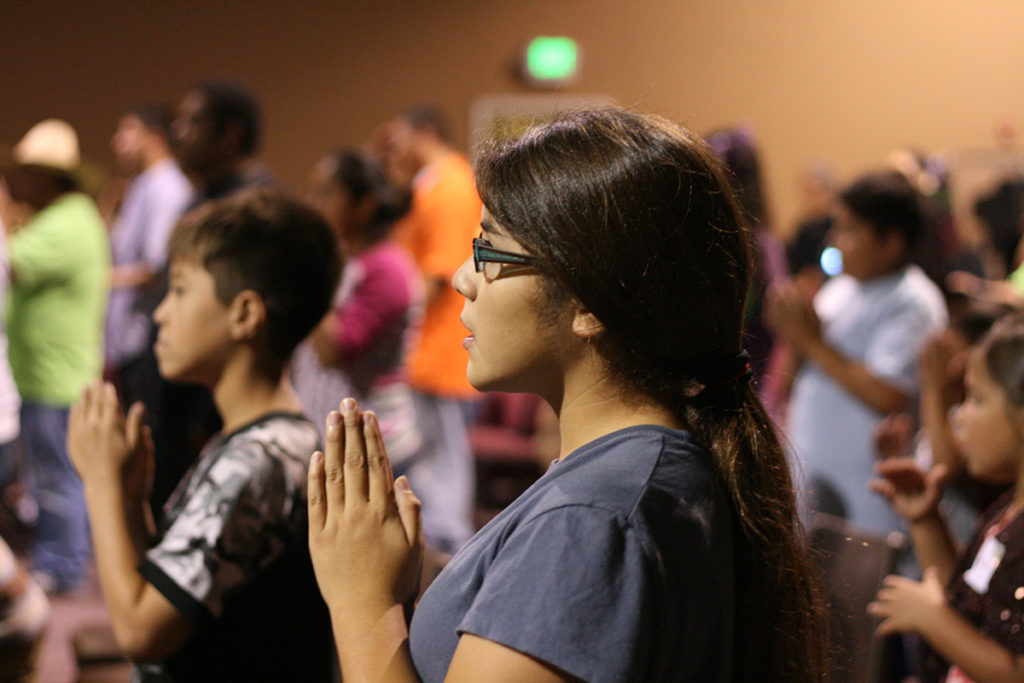
YOUTH: VOICES OF HOPE IN SOCIETY
The front cover image shows youngsters commemorating Youth Day at Orlando Stadium in Soweto, the same location where an uprising against the use of Afrikaans as a vehicular language of education took place in 1976.
Some might see June 16 only as a public holiday, nevertheless, gratitude goes to those who strived on behalf of the youth for an inclusive and better education. Many youths today still face great challenges and need strong support in order to receive an integral formation which prepares them for a bright future.
REFELCTIONS • YOUTH IN THE CHURCH

Youth, faith, and belonging
The Church can be positively shaped by the joy, energy, enthusiasm and faith which young people manifest. However, for this to happen the Church must listen to their dreams and make the effort to accompany them in their search for beauty, love and truth
BY Fabian Oliver | Youth Minister, Johannesburg
AFTER SEVERAL years of dedication as an altar server, then a youth leader, and currently as a youth minister, I can confidently say that the youth are the Church of today and the Church of the future. Thus, intentional pastoral accompaniment of the youth remains an imperative exercise at the heart of Church ministry. In this reflection, I would like to offer considerations on the importance of youth accompaniment through listening to their stories and understudying their context as an ecclesial practice. We will look at the importance of faith nourishment as the collective response to God’s invitation to love, beauty, justice, and truth. Finally, we will consider the role of true belonging as an authentic pastoral practice. We will look at how recent scenarios as well as biblical stories capture the essence of youth accompaniment.
In meeting youths in their spaces, we should ponder on what Jesus would say to them
Accompany and listen
The words accompany and listen were key themes highlighted in the final document of the Synod of Bishops (2018) on Young people, the faith, and vocational discernment. These are still important tenets of ecclesial practice, for if the Church wants to meet young people where they are, she must journey with them, witness Christ in their midst and allow herself to be shaped by the questions and stories they pose. It ought to not be one-sided, where the Church dictates and is not willing to be shaped by current questions. Put differently and in the words of the Jesuit superior general, Arturo Sosa SJ, the Church should “discern the signs of the times through the eyes of young people” (O’Connell 2018).

If the Church wants to meet young people where they are, she must journey with them
There seems to be courage in young people to voice their concerns to the Church no matter how controversial it may be. In the Synod on Youth, young people voiced various issues including treatment and inclusion of people who are LGBTQ+, abuse scandals in the Church, the lack of involvement of women in leadership positions, etc. This activism echoed from some youth in the Church, for example, insisting and protesting that women be given voting rights at the Synod on Youth. Dulle (2018) gives voice to the spirit of global activism which cries out for justice and equality. While others see this activism as a ploy for the Church to become more secular, or worldly and less godly (and even sinful), others see this as an opportunity for the Church to be more inclusive, in touch with science, and perhaps more sensitive to the Spirit of God that consistently calls us to transformation. We cannot forget that it was 15-year-old Greta Thunberg that brought global attention to the current climate crisis. It was 17-year-old Malala Yousafzai that brought global attention to women’s and children’s right to education.

The experiences of youth matter! How we then journey with them remains the ecclesial question. We need to allow them to tell their story. The creation of spaces to listen, engage, pray, have fun, challenge and be challenged are vital. This includes intentional ecclesial ministries, advocacies, training of lay people, and support. It may also mean a deliberate going out and meeting young people where they are. For it is Jesus who meets the Samaritan woman in her context, breaks ethnic and gender barriers, listens, and invites her to drink from the living water of God (Jn 4: 5–30). In meeting youths in their spaces, we should ponder on what Jesus would say to them. What would Jesus say to the millions of unemployed youths in South Africa? What would He say to the millions of youths who are poor, migrants, living in war-torn oppression? What would He say to those throttled because of their race, gender, or sexuality? What words of Jesus can we offer to youth who are increasingly feeling depressed, anxious, and suicidal?
Faith nourishment: a call to beauty
In my experience as a youth minister, there remains a universal quest for the real, for beauty, love, truth and something greater than ourselves. This quest is tantamount to the words of the Church Father, St Augustine, who noted that “You have made us for Yourself, O Lord and our heart is restless until it rests in You.” I believe that part of the faith-nourishing of youth is the cultivation of spaces able to witness God’s beauty in creation; to witness the beauty of our Imago Dei of being made in the divine image; that all life is sacred, and we should live in that sacredness. Along with beauty, these spaces should be geared towards feeling God’s eternal love, to allow for self-realisation, that you are loved, to love yourself, and reflect on what it means to love God and creation. Along with beauty and love, there should be spaces geared towards speaking God’s truth and justice. These are spaces enhancing oneness with others, compassion, and solidarity to stand with others and to do what is right and just in God’s sight. Thus, the authentic desire for beauty, love, and truth, are tenets of faith nourishment that allow youth to live in God’s presence.

In our busy everyday lives coupled with many hardships and human suffering, many youths fall into despair, finding it hard to have faith in God (let alone come into the doors of the church). Here, I am reminded of the Gospel story of the road to Emmaus where after witnessing the death of Jesus, the disciples are walking in sadness and disappointment having had their hopes shattered. Then, suddenly, Jesus is with them even at their lowest moment, and after He breaks the bread with them, they realise Christ is alive! Their faith is restored, and they share this with others (Lk 24: 13–35). So too is the role of pastoral accompaniment—to witness Christ in our midst even at the most difficult moments.
In meeting youths in their spaces, we should ponder on what Jesus would say to them
A place of belonging: a testimony
If there is authentic listening, journeying with, and faith nourishing, then youth may find a place of belonging. During one of our youth nights, the youth and I found ourselves seated at the back of the church gazing upon the crucifix of Jesus. I asked the youth a rather bold question, ‘Why do you love the Church and more specificallz Jesus who is placed on that Cross?’ The culmination of their answers beautifully captured the essence of our faith as Christians. Some said that in Jesus they found someone who did not judge them, who does not discriminate against anyone and who will always be there no matter what they go through. Another said they love Jesus because He persevered no matter how difficult things got in His ministry, He stayed true to who He was. This, for them, is an inspiring reminder to stay true to who you are and to your purpose. Someone else said, ‘Through Jesus, the Church is a place where I found belonging. After struggling to find the right friends, in the youth group I feel like I belong, and that Jesus teaches us how to accept and love each other.’ These testimonies from the youth offer us a glimpse of how Christ is alive in our lives.Christ is not dead and out of touch with our realities. For the youth, Christ is personal and continues to move behind the scenes in the wonderful journey of their young lives.

